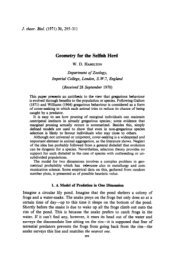Chapter 6 - Ethical Culture Fieldston School
Chapter 6 - Ethical Culture Fieldston School
Chapter 6 - Ethical Culture Fieldston School
You also want an ePaper? Increase the reach of your titles
YUMPU automatically turns print PDFs into web optimized ePapers that Google loves.
“Mr. Sinatra Gets Rejected”<br />
These social, economic and technological developments also had a<br />
decisive impact on American values. Until around the time Sinatra was born, the<br />
United States was predominately a culture of production: its social values (e.g. the<br />
Puritan work ethic), material conditions (an abundance of raw materials) and<br />
economic realities (like relatively high labor costs, which fostered technological<br />
innovation as well as the immigration of intellectual capital from abroad), helped<br />
create a society in which making things was paramount. Starting in the 1920s –<br />
the first decade where more Americans lived in cities than in rural areas – the<br />
U.S. became a culture of consumption: as many government and business leaders<br />
recognized, the future success of capitalism depended on nation’s ability to<br />
absorb incredible productive capacity via buying, spending, using up. Indeed, it<br />
was precisely the difficulty in absorbing this capacity that was widely blamed for<br />
the advent of the Great Depression.<br />
This new culture of consumption had important psychological<br />
ramifications that reached deep into the roots of mass consciousness. In the<br />
words of cultural historian Warren Susman, a society that once placed emphasis<br />
on character now prized personality. “Character” has a moral connotation; it<br />
suggests the essential nature of an individual in a way that transcends surface<br />
appearances. But “personality” suggests the allure of precisely such surface<br />
appearances, whether via the acquisition of cosmetics or a newly styled<br />
automobile (Alfred Sloan’s General Motors Corporation was finally able to beat<br />
Henry Ford at his assembly‐line game by subtly changing his models every<br />
year).<br />
Here again, the example of Crosby is instructive. While he no doubt had<br />
to work hard to establish himself, a large part of Crosby’s appeal was that he<br />
made it all seem so easy. He was one of the first modern celebrities – a man<br />
American History for Cynical Beginners<br />
14
















